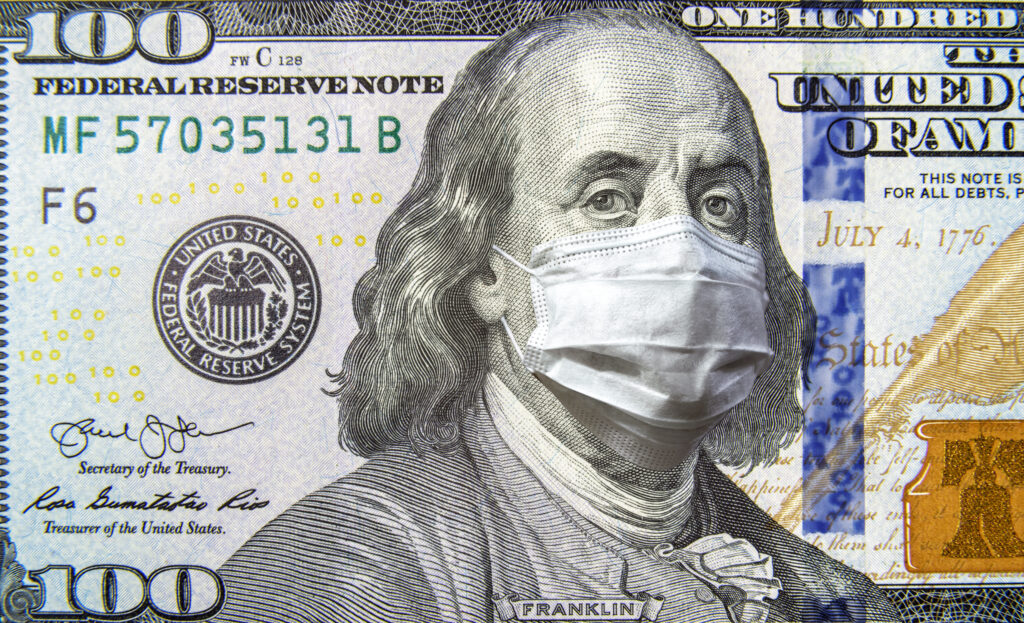What insurance carriers have recently done to prevent large law firms from pursuing insurance coverage claims against them is perhaps one of the most brilliant strategic legal moves ever orchestrated. And, it is also one of insurance law’s dirtiest little secrets. The end result is that virtually none of the large prestigious laws firm practicing in the United States can effectively pursue claims against insurance carriers. In today’s video post, Mark Miller examines some of the factors that policyholders should be aware of before they seek insurance claims advice from defense counsel.
One of the least publicized ways that insurance carriers control the legal market is through their relationship with defense panel counsel. Virtually every large prestigious law firm is now on panel counsel for at least one major insurance carrier. The reason for this is that a large portion of corporate defense work is paid by insurance carriers. Insurance companies pay large law firms tens or even hundreds of millions of dollars to defend claims under their policies. Naturally, corporate litigators want their fair share of this work, and to get it, their law firm needs the blessing of the insurance carriers that control and pay for that work. Insurance carriers, likewise, need to trust panel counsel that serves them. It is only natural for insurance companies to regulate panel counsel firms.
In the good old days, insurance companies understood that panel counsel law firms might need to sue them, occasionally, so they permitted panel counsel to pursue certain kinds of claims against them. Those days, however, are long gone. A number of years ago, insurance carriers rightfully realized that if they could either eliminate large law firms from suing them, or control how those firms pursued claims against them, they might gain a strategic advantage with respect to insurance claims. What large law firms had years ago was the old adage, “don’t bite the hand that feeds you.” They pursued claims against insurance carriers, but were careful not to pursue those claims vigorously, or else they risked losing insurance company defense work.
Insurers have changed that old adage now to, “if you try to bite us, we will vigorously bite back.” Now, panel counsel may attempt to handle claims behind the scenes, but, they are keenly aware that they are in a difficult situation. Large law firms may still advise policyholders on corporate insurance claims, but they function now only as advisors. When policyholders ask defense panel counsel firms for insurance claims advice, they are entering into a match where the opposing team controls the players for both sides. It may be interesting to watch, and it may look like things are going well, but it is not a fair fight. Moreover, the relationship seldom permits effective negotiation and settlement of claims. This kind of situation ends well only if the corporate policyholder is willing to settle for far less than they are entitled.
In this video, the first of a two part series, we address these and other issues that corporate policyholders face when defense counsel are asked to investigate an insurance claim. Watch the video to learn all about it.
For a transcript of the video please see below:
Can Defense Panel Counsel Effectively Handle Insurance Claims? Part One.
There is different levels to this and that is how do insurance companies control or regulate their panel councils so that those council don’t turn against them and file a big lawsuit against them. They control this in a number of different ways.
Years ago, most insurance companies realized that we are all big boys and girls and we all know the law firms are noble, they will represent a client, sometimes they will be for you, sometimes they will be against you. So, we will give you a written waver and no big deal. If you want to sue us, we don’t like it but we will give you the waiver, well that all stopped a number of years ago, the waivers are much more difficult to get and they are very limited in scope.
The idea that you can both represent an insurance company or be on panel counsel and then sue or be adverse to an insurance company is sort of a grey area. So, on the insurance company side they have tied the strengths over the years. If you are going to be on panel counsel you are going to have some sort of an agreement.
Why would a law firm sign that agreement? Quite frankly, its advantageous to be on panel counsel if you are defending big cases, I mean you want to be the person listed that the insurance company will pay for because the client will be happy and you can practice law and do a good job doing it.
So, you want to be on that list if you are an important lawyer at a big law firm. So, what they do is that, there is an agreement, you can have an agreement if you are a panel counsel and somebody in the law firm it’s going to sign it and it’s going to control what you can do. Sometimes these agreements set forth you can’t do certain things and other times it’s just understood you can’t do certain things.
For years, it was just understood that if you are an AIG panel counsel you could sue AIG, if you’re gutsy enough but you have to give them a heads up before you sue them and you couldn’t sued them and you couldn’t sue them for bad fate and you damn well better not be aggressive in that law suit because that’s just uncomfortable for AIG (American International Group).
If you are at a big law firm an you need to sue AIG you would call the AIG’s liaison and the AIG liaison would say, “Hey do you mind if I give them a heads up, they are going to get sued, we can’t we can’t sue them without telling them about it.
You might say as a lawyer doing the insurance work well, there is a big issue with form and choice of form, by that, we need to be in this jurisdiction to win, if we are in this jurisdiction over here, we lose. So, and you’re saying, “I don’t know if it’s okay to tell the insurance company we are going to sue them and why do we have to?”
Well, that is what you would say is a policy holder lawyer and on the flipside, the other guys like, “How can it harm anybody, we are just telling them that we are going to sue them and give them a little bit of time to get ready of it.”
Then on the other side you are thinking if you are the policy holder lawyer you are like, “What do you mean give them time to think about it, they are going to strategize and do something it’s not right?”
Anyways that’s the dynamic and it does happen. Let’s say you get through that and you do sue them, this is a situation that happens as well. Well, you are looking at the claim and you are saying, “You know what, this is really bad conduct, this is a legitimate bad faith claim, I need to make that claim for my client.”
So, talk to the client, client gets all fired up, they’re ready to file a bad faith law suit, amend the law suit for bad faith, go for punitive triple damages and everything else and make this a really exciting case and they are happy to do it and they want to do it. So, you’re at one of one of these big law firms and you say, “Okay, we are ready to go, we are going to file a bad faith case,” What happens? You can’t file it. What do you do? It’s uncomfortable. You got to go back to the client and say, “Yeah, you know what? I can’t do it.” What does the client say? “What the hell are you talking about?”
“What do you mean you can’t do it?” So, that’s the kind of dynamic that happens and of course there’s ways around that, you can hire bad faith council, you can do this, you can do that, but at the end of the day, the insurance company is upset, your law firm is not going to get as much business or they going to get cut off.




